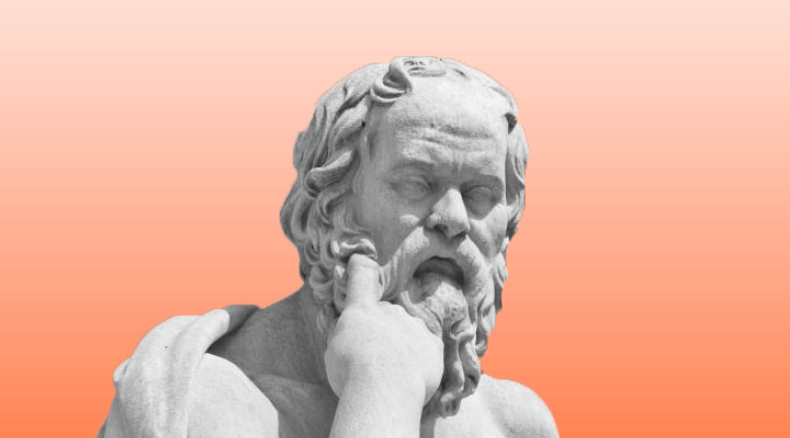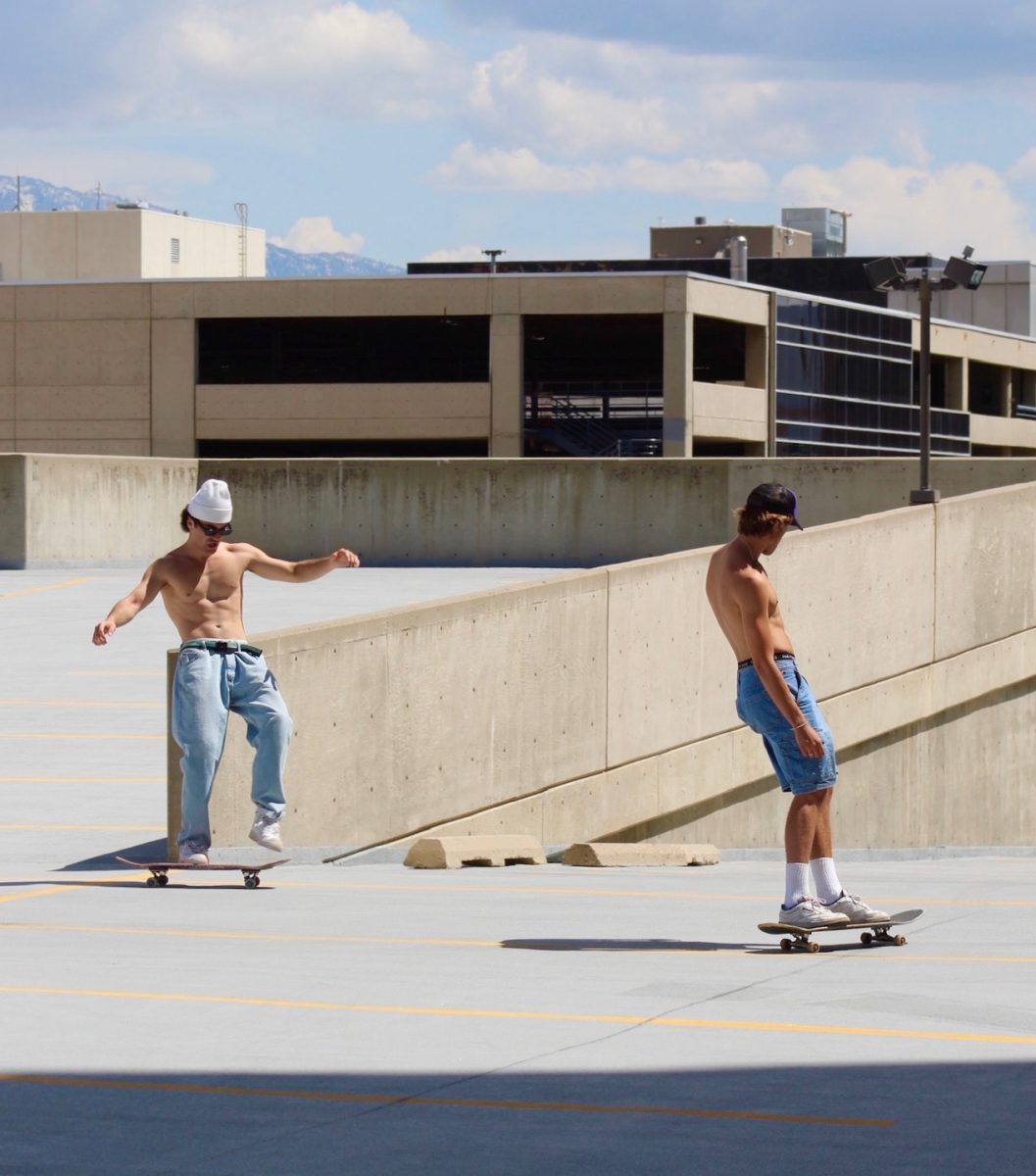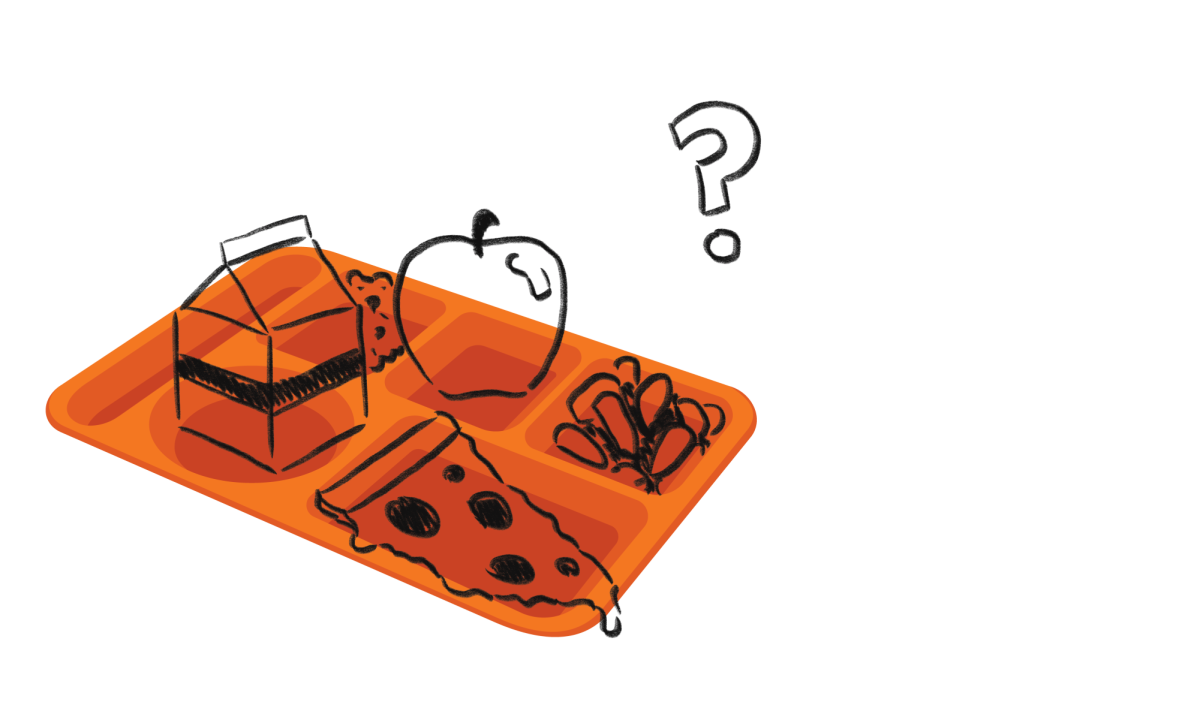Soter: What Philosophy Can Teach Us about 2021
(Graphic by David Onwukeme | The Daily Utah Chronicle)
September 3, 2021
Like many other unfortunate souls, I started college during the pandemic. I spent most of my freshman year in my pajamas behind a blacked-out Zoom screen, which made it difficult to make new friends. Every social aspect of the so-called college “experience” was not possible. As I look forward to this upcoming school year and reflect on the past one, I can’t help but feel anxious. But deep within that anxiety lies a sliver of hope that the shared experience of COVID-19 made us more compassionate students, capable of far more impactful and profound relationships than the ones we spent our youth eagerly awaiting.
Part of what made COVID-19 novel was the way it utterly obliterated our social lives — I find it curious that we couldn’t maintain many friendships despite advanced technology. For many, the evaporation of friendships sprouted from realizations made in isolation. We realized that the relationships we held near weren’t quite as fulfilling as we thought. As Melissa Regalado, a senior at the U, put it, “The pandemic gave me time to reflect on the friendships I had and this helped me figure out what friendships I could put more of my energy into.”
For others, friendships just dwindled, which was to be expected considering that nearly 50% of the US population experienced depressive symptoms during the pandemic. Whether that was lethargy, loss of interest in typical hobbies or general apathy, it made nurturing friendships much harder. Social devastation hit young people the hardest. A recent Harvard study discovered that more than 60% of young people experienced “serious loneliness” during the pandemic. Now, as we go back to campus, it’s important to understand what friendship is, how it functions and why it is critical to human nature.
While I was researching friendship, Aristotle was mentioned more than once – because his friendship ideologies are still maintained by society. According to Aristotle, there are three types of friendships: friendships of utility, pleasure and virtue. He believed that friendships of utility are friendships that only exist because we are getting something from them. It is like my relationship with the barista at my favorite coffee shop — we get along fine but based on the few conversations we’ve had, I know that we wouldn’t get along if he wasn’t giving me something that I wanted: coffee. Similarly, friendships of pleasure exist because both parties get pleasure from some aspect of the relationship. The easiest example here is a friendship that is based on a particular hobby or activity. Utility and pleasure friendships are rooted in selfishness, as we are rewarded but aren’t required to give much in return. But friendships of virtue are based on much more than selfishness — instead, they arise because of similar values, mutual commitment and deep understanding.
As I think about each friendship type juxtaposed with my life during the pandemic, it becomes wildly apparent how each friendship needs the other to function. Often, friendships of virtue are far too all-encompassing to maintain without the others. If it weren’t for friendships of utility and pleasure, friendships of virtue turn idle and stale because there is less novelty and growth.
Unfortunately, friendships of virtue were the ones that were maintainable during the pandemic. Regalado said, “I was able to cultivate deeper friendships with some people. There were friends I knew that I wanted to stay in touch with and spend time with during the pandemic, so I made sure to invest more time in those.” And she was not alone in this experience — many of us were left with only a few of our most cherished people to rely on during the peaks of the pandemic. You may remember these select groups as our “social bubbles.” While they were necessary, they had an added dependency pressure.
Now, as we re-emerge into the academic world a bit battered but fortified, it is up to us to rediscover a balance of all friendship types. If isolation taught us anything, it’s how important human connection is to our survival. We need each other. Friendships of utility, pleasure and virtue are all essential. As we go back to our new normal, there is no doubt in my mind that the U’s students will return with an eagerness to cultivate various friendships that will last a lifetime and a newfound appreciation for that opportunity













